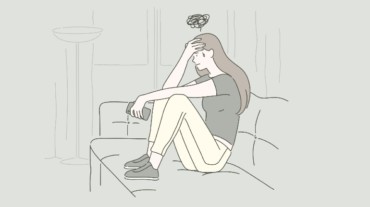
Do you often have negative thoughts? If you nodded yes, boy have we got some news for you. According to researchers, negative thinking can increase our chances of getting dementia.
A study published in the journal Alzheimer’s & Dementia found that persistently engaging our mind in negative thinking patterns can lead to cognitive decline.
How did the study start?
The research team started by studying 292 people above the age of 55. During the study term of two years, the participants answered questions about how they typically think about negative experiences. The study focussed on RNT (repeated negative thinking) patterns like rumination about the past and worrying about the future.

To study the impact of negative thinking on our cognitive function, researchers measured memory, attention, spatial cognition, and language. The study also studied PET brain scans to measure deposits of tau and amyloid. These two proteins are known to cause the most common type of dementia, Alzheimer’s disease, when they build up in the brain.
What did the researchers find?
The lead author of the study from the University College London, Natalie Marchant stated: “Here, we found that certain thinking patterns implicated in depression and anxiety could be an underlying reason why people with those disorders are more likely to develop dementia.”
They also went on to find that the RNT is linked to subsequent cognitive decline as well as the deposition of harmful brain proteins linked to Alzheimer’s. People who engaged in negative thinking patterns had a high risk of having more amyloid and tau deposits in their brain.
The research participants already had a high likelihood of developing depression and anxiety symptoms.
Are depression and anxiety linked to high Alzheimer’s disease risk?
The experience of depression and anxiety are associated with subsequent cognitive decline, yet these mental health ailments don’t directly impact either the amyloid or tau deposition. This suggests that particularly repetitive negative thinking might be the main reason why depression and anxiety contribute to Dementia’s risk.
Also, Read: Time to change: These 6 common habits can make your anxiety worse
The takeaway?
Marchant stated that “We propose that repetitive negative thinking maybe a new risk factor for dementia as it could contribute to dementia in a unique way.”
The researchers have found that repetitive negative thinking can actually contribute to Alzheimer’s risk through the stress it causes. The stress created by negative thinking patterns invites health issues such as high blood pressure. This psychological stress can actually contribute to the amyloid and tau deposition in our brains.
Select Topics of your interest and let us customize your feed.
PERSONALISE NOW
What can you do about it? Previous research suggests that mindfulness or meditation can actually reduce dementia risk. So, it’s time to actually reassess our internal dialogue and become mindful of it. The practice of meditation can actually your mind to distance itself from your certain thoughts so they don’t turn into negative unconscious patterns.
With our health at stake, it’s time to break the cycle of negative chaos and focus on the positive for good!
(With inputs from IANS)